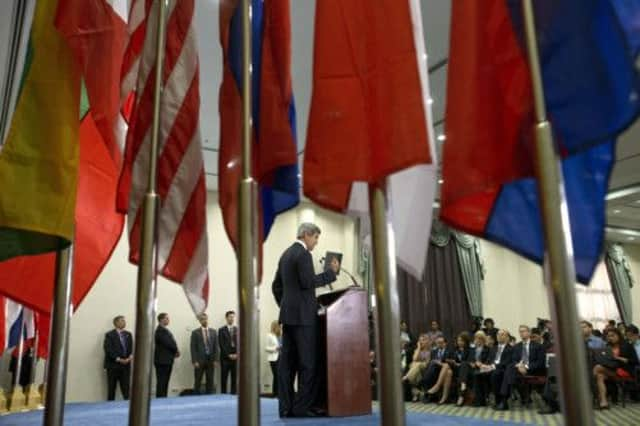Obama: Spying on other nations is not unusual


The European Union has demanded the United States explain a report in a German magazine that Washington was spying on Europe, saying that, if true, such surveillance was shocking.
French president Francois Hollande called the alleged action intolerable, saying it could hinder US relations with Paris and the EU.
Advertisement
Hide AdAdvertisement
Hide AdHowever, Mr Obama, on a visit to Tanzania, promised to supply all the information requested by European allies regarding the spying allegations, which he said Washington was still evaluating.
Mr Obama said: “Every intelligence service, not just ours, but every European intelligence service, every Asian intelligence service, wherever there’s an intelligence service, here’s one thing they’re going to be doing: they’re going to be trying to understand the world better and what’s going on in world capitals around the world from sources that aren’t available through the New York Times or NBC News.”
He added: “If that weren’t the case, then there would be no use for an intelligence service. And I guarantee you that in European capitals, there are people who are interested in – if not what I had for breakfast – at least what my talking points might be should I end up meeting with their leaders. That’s how intelligence services operate.”
His secretary of state, John Kerry, in Brunei for an Asian security conference, said the US was not alone in using “lots of activities” to safeguard its security.
Revelations about the US surveillance programme, which was made public by fugitive former NSA contractor Edward Snowden, have caused a furore over the balance between privacy rights and national security.
Newspaper reports said on Sunday the US had also spied on non-European allies, including Japan, South Korea and India – all represented at the Asian security conference.
Mr Kerry confirmed that EU foreign policy chief Catherine Ashton had raised the issue when he met her in Brunei. He said he had yet to see details of the newspaper allegations.
“I will say that every country in the world that is engaged in international affairs and national security undertakes lots of activities to protect its national security and all kinds of information contributes to that. All I know is that it is not unusual for lots of nations,” Mr Kerry said. Several EU policymakers said talks on a US-EU free trade deal should be frozen until Washington clarified its activities.
Advertisement
Hide AdAdvertisement
Hide AdEuropean Commission President Jose Manuel Barroso has asked officials to carry out a security sweep of EU buildings.
Martin Schulz, president of the EU Parliament, said the US had crossed a line.
“I was always sure that dictatorships, some authoritarian systems, tried to listen… but that measures like that are now practised by an ally, by a friend, that is shocking, if it is true,” Mr Schulz said.
In an article that sparked EU outrage, Der Spiegel said on Saturday the National Security Agency bugged EU offices and computer networks, and reported that the US agency taps half a billion phone calls, e-mails and text messages in Germany in a typical month, similar to the data tapped in China or Iraq.